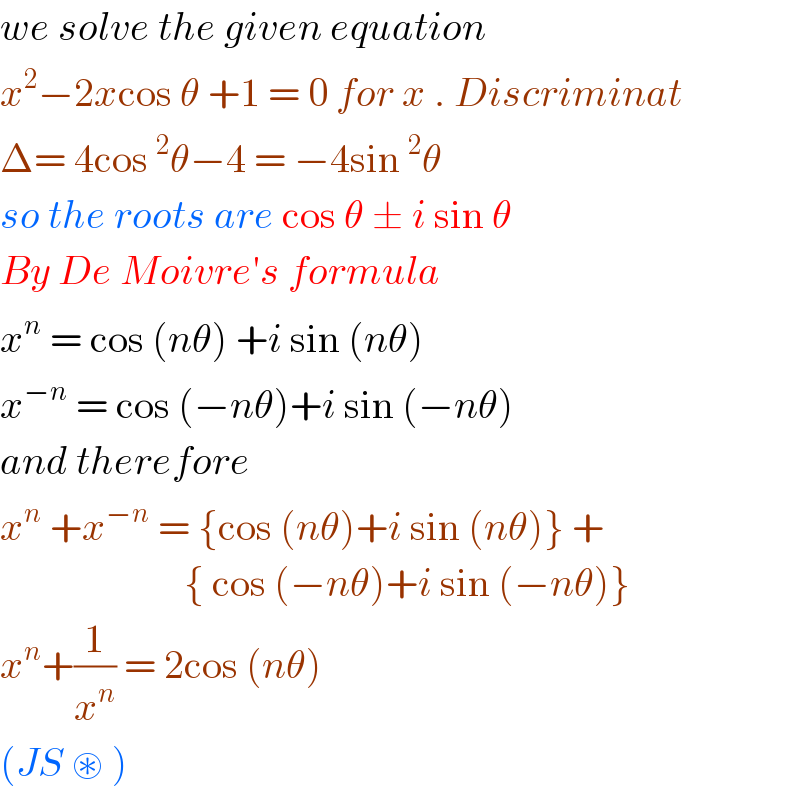Question Number 104727 by bemath last updated on 23/Jul/20

Commented by bemath last updated on 23/Jul/20

Answered by mr W last updated on 23/Jul/20

Commented by 1549442205PVT last updated on 23/Jul/20

Answered by john santu last updated on 23/Jul/20

Answered by Dwaipayan Shikari last updated on 23/Jul/20

Answered by mathmax by abdo last updated on 24/Jul/20

